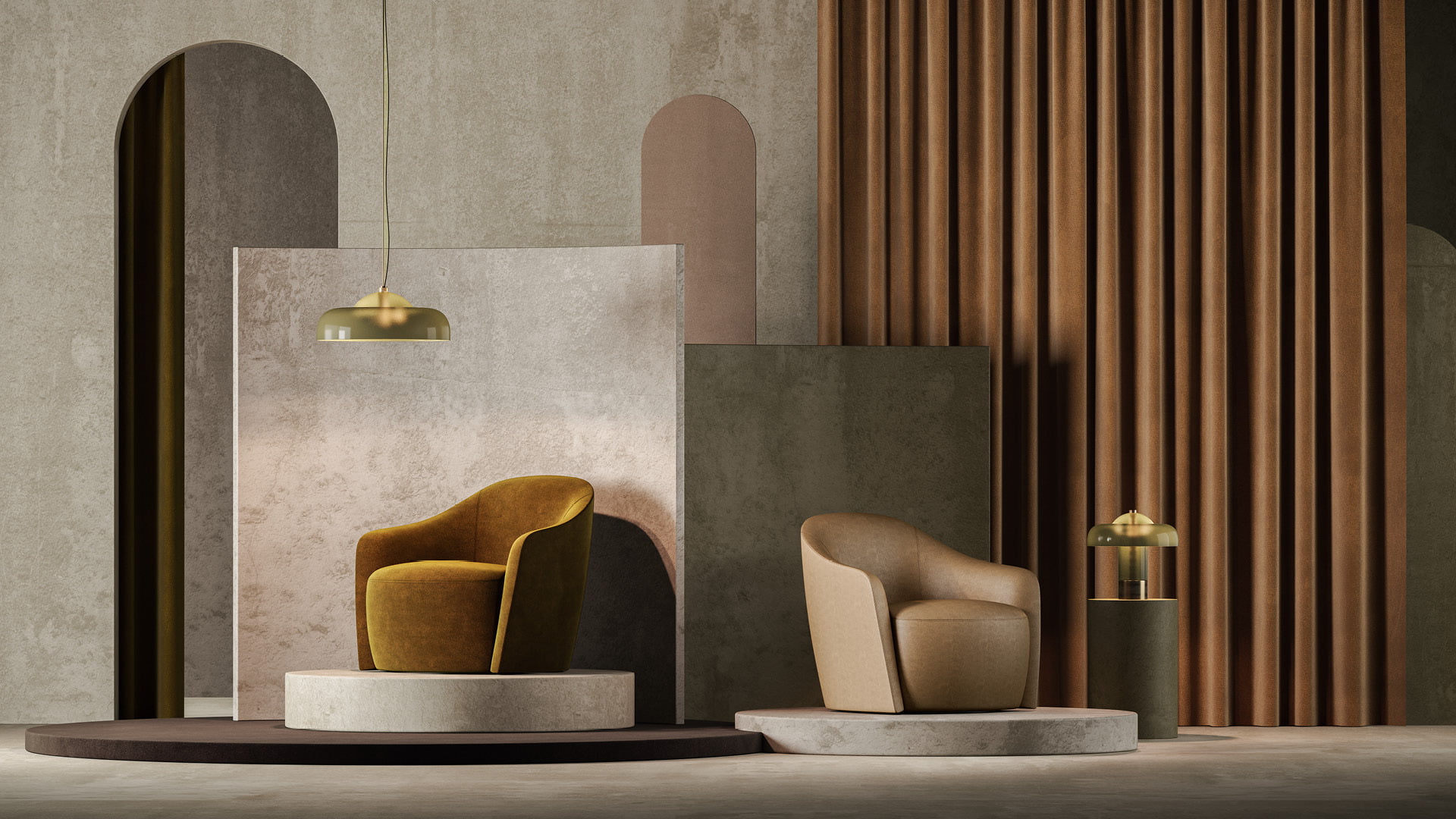
Bio foam represents an opportunity to significantly improve the sustainability of contract furniture explains Boss Design’s Sustainability and Environmental Compliance Manager
The launch of Remi – our new lounge chair – was an important event in terms of the sustainability of our business, and our industry. Like so many pieces of furniture, Remi’s cushions are made of injection moulded polyurethane foam. Typically, this is not regarded as being a highly sustainable material as it is formulated using fossil fuels. Though expanding, recycling opportunities are limited, and landfill is often the final destination for many PU-based products.
However, with Remi we have pioneered the use of Bio-Pur® – a bio foam made using renewable raw materials instead of fossil fuels. Bio-Pur® has a carbon footprint 75%* lower than conventional PU foam. This is a game-changer in our industry. It means that furniture designers will be able to create products that benefit from the workability and durability of PU foam while drastically reducing the impact these products have on the environment.

What is BioPur®?
BioPUR is physically and chemically identical to PU foam. The only difference is that the methane used in the chemical process during manufacture is derived from anaerobic digestion of organic waste instead of from fossil fuels.
This process is the embodiment of a circular manufacturing model.
Reducing the carbon footprint of foam by 75%*
Bio-Pur® is made using a biomass balanced approach. The fossil fuel component in the polymer is reduced and replaced with renewable components. In this case, biomethane is made through the breakdown of agricultural waste by anaerobic digestion then captured to feed into the manufacturing process. Bio naphtha derived from vegetable oils is also part of the feedstock. Unlike a fossil fuel-based method, there are no methane emissions and so no additional pollutants are released into the atmosphere.
A further benefit is that organic waste – manure, crop cuttings, waste oils and so on – are consumed in the process, rather than decomposing and slowly adding further green house gasses to the environment.
No compromise in quality or performance
Physically and chemically, Bio-Pur® is identical to conventional PU foam. It’s durable, returns to form, can be produced in different densities and can be formed using a cold cured injection moulded process.
With Remi, this provided our designers with the flexibility to produce a piece of furniture with flowing, curvaceous lines and a beautiful organic form, complemented by a more sustainable production process. Aesthetically, Remi will have long-lasting appeal, which will be matched by its resilient, supportive and highly durable bio foam cushioning.
It should also be noted that Bio-Pur® is halogen-free, and compliant with Crib-5, POPS and PFAS standards. It contains very low volatile organic compounds (VOCs) and only trace formaldehyde, meaning safe air quality wherever it’s deployed.
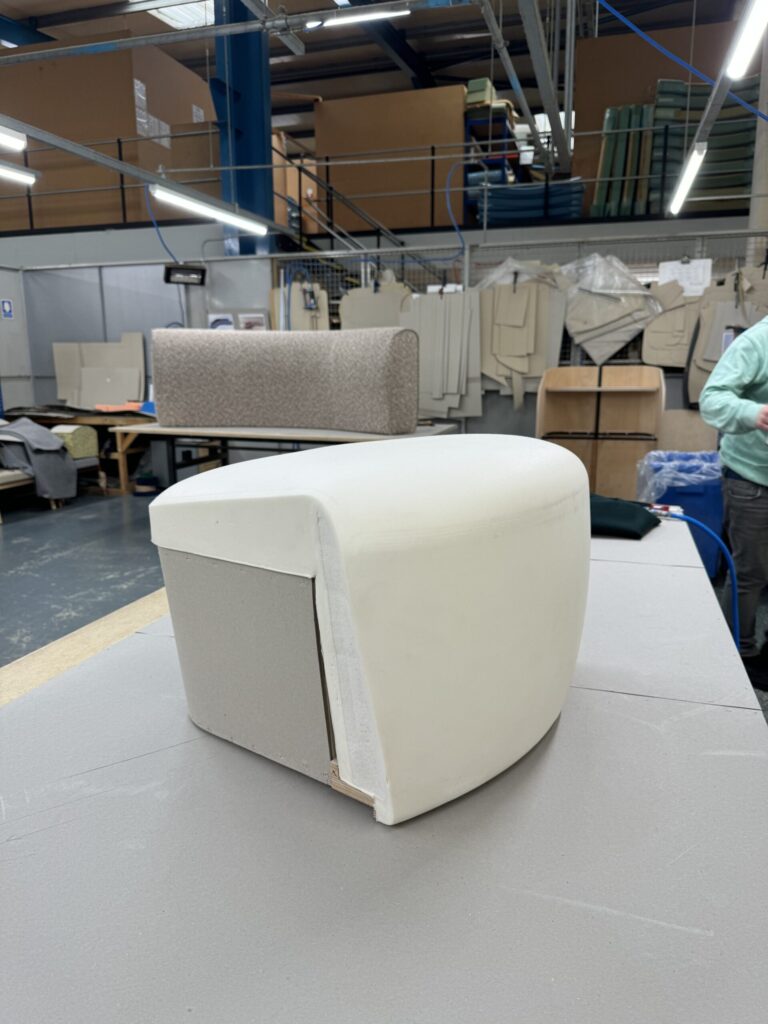
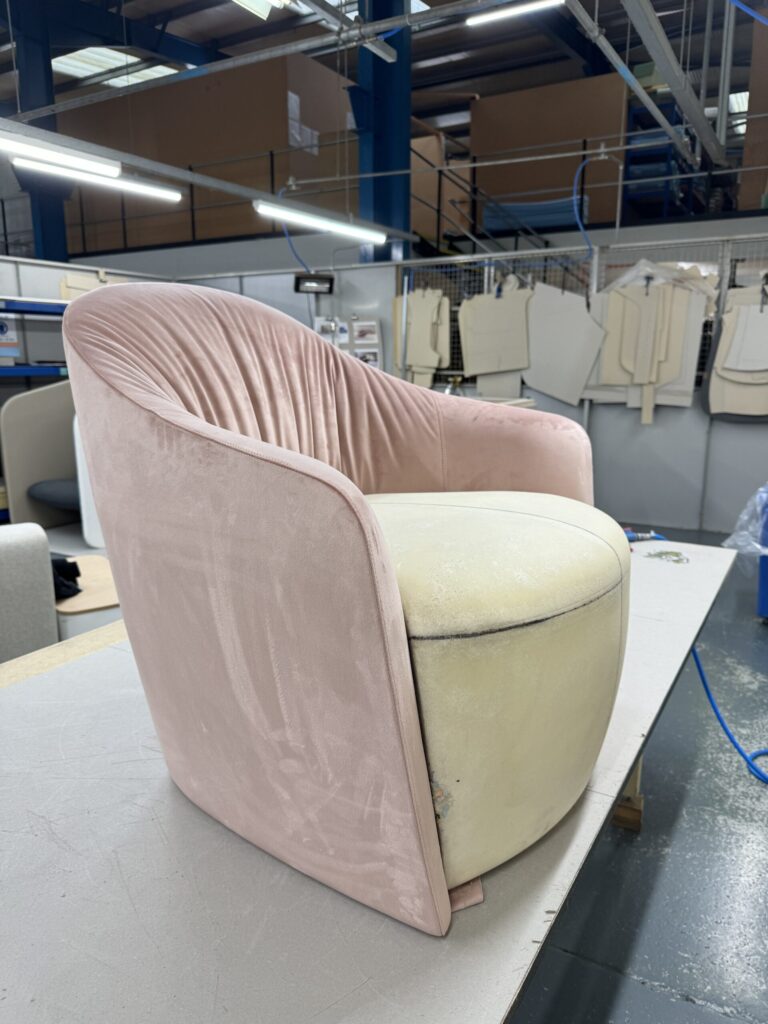
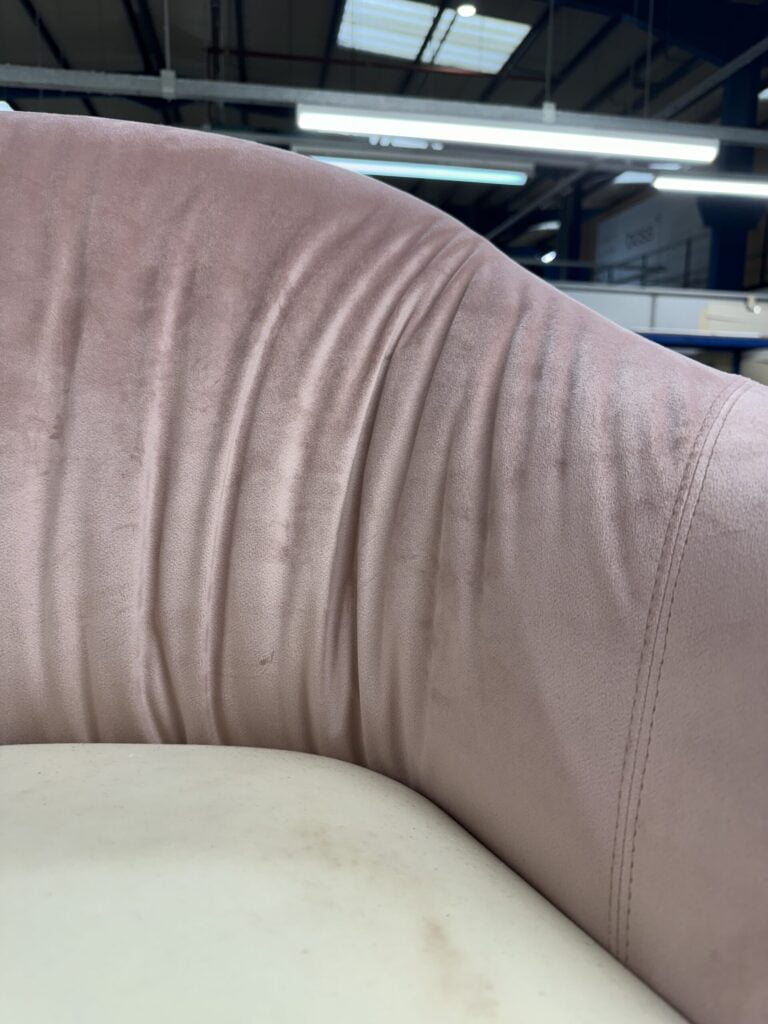
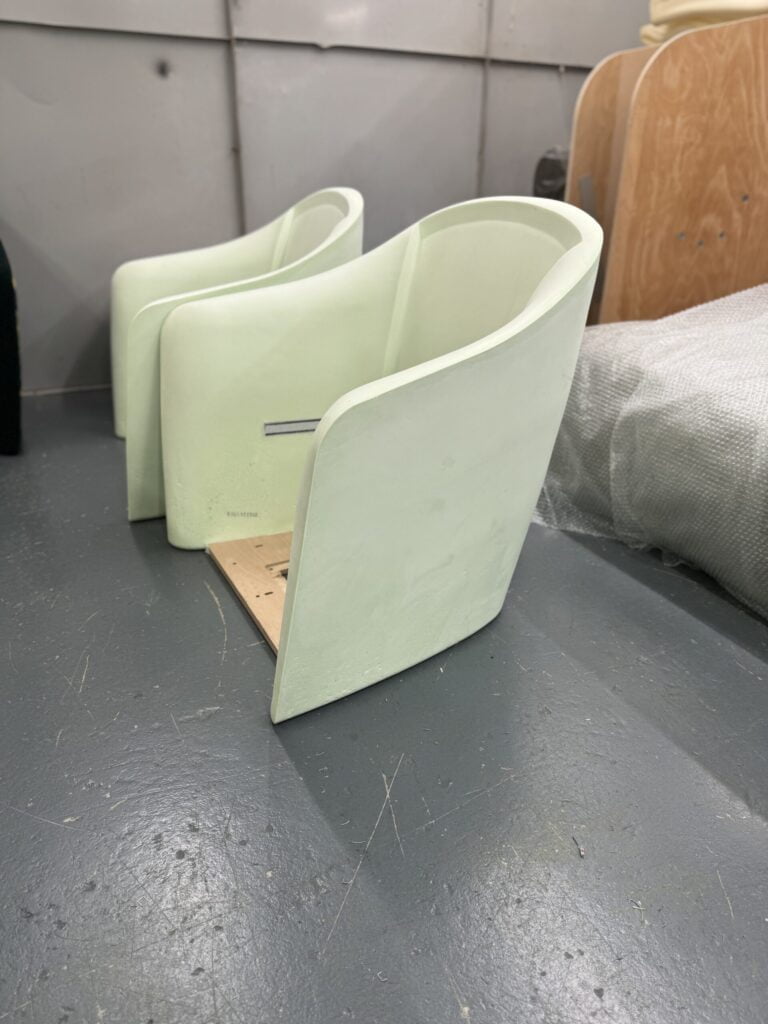
Next steps…
At the time of writing, Remi is the only product in our range to use Bio-Pur®, but we intend to use it to replace fossil fuel-based polyurethane in seating such as Amelia, Paloma, Marnie, Manta and more.
Often, the introduction of new materials results in a requirement to retool, with the associated carbon and monetary costs. However, because Bio-Pur®’s characteristics are exactly those of conventional PU foam, we will be able to utilise existing machinery and casts as we transition to more sustainable product lines.
For example, our Amelia chair is 46% PU foam in its standard configuration with an embodied carbon of 30.45kg carbon dioxide equivalent (CO2e). Using bio foam will reduce this figure to 23.12kg CO2e – a drop of 24.1%**.
This is a clear demonstration of how significant Bio-Pur® will be for the sustainability of our furniture, and that of other manufacturers should they take up the opportunity to use it.
*We are verifying our data through an accredited LCA and EPD assessor. We are working to align BioPur with ISO14067 (Product Carbon footprinting).
**Carbon associated with delivery of goods was consistent across the two calculations and therefore excluded.
Boss Design – June 24
Boss Design North America
High Point N.C. 27262
t. +1 336 889 9400
Boss Design UK
DY2 8SZ.
t. +44 (0) 1384 455570
© Boss Design.

Please wait while you are redirected to the right page...